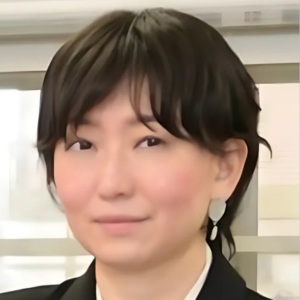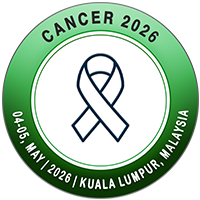
Yuki Yoshimatsu
Tochigi Cancer Center Research Institute, JapanPresentation Title:
Precision medicine for rare cancers
Abstract
Addressing rare cancers is a pressing priority in contemporary oncology—not only because patients with these diseases often experience substantial clinical disadvantages compared to those with more common cancers, but also because the total number of individuals affected is significant. Despite their collective burden, rare cancers remain largely underserved due to several systemic challenges. These include the limited number of cases available for clinical trials, insufficient commercial incentives for pharmaceutical development, restricted opportunities for clinicians to accumulate experience, and frequent diagnostic uncertainty among non-specialist healthcare providers.
Sarcomas serve as a representative example of rare cancers, characterized by low incidence, diverse histological subtypes, and intricate molecular backgrounds. These features contribute to delayed diagnoses and a lack of standardized therapeutic protocols. To address these issues, our research adopts a comprehensive, multi-layered strategy. We conduct chemosensitivity assays using patient-derived tumor tissues, and establish disease models such as cell lines and organoids to enable functional validation and drug screening.
Concurrently, we carry out proteogenomic analyses by integrating mass spectrometry-based proteomics with next-generation sequencing data, including both genomic and transcriptomic profiles. This integrative approach is designed to identify promising therapeutic candidates along with their predictive biomarkers. By correlating molecular characteristics with treatment responses, we aim to develop personalized treatment strategies that reflect the unique biology of each tumor type.
Our ultimate objective is to advance the foundation for precision oncology in the realm of rare cancers, ensuring that patients with these malignancies have access to evidence-based and effective treatment options. This approach not only contributes to scientific progress but also addresses the ethical imperative of providing equitable care.
Biography
Yuki Yoshimatsu received her Ph.D. in Pathology from the Graduate School of Medicine at the University of Tokyo. She began her research career at the National Cancer Center, where she focused on viral carcinogenesis, particularly human papillomavirus-induced cervical cancer. As a research trainee, she investigated the molecular mechanisms underlying the multi-step process of cervical carcinogenesis. She continued her research as a postdoctoral fellow at the Fred Hutchinson Cancer Research Center (Seattle, USA), studying the sequential carcinogenic process of Merkel cell carcinoma. Subsequently, as a senior fellow at the University of Washington Medicine (Seattle, USA), she conducted research on the auditory nervous system, focusing on the ultrastructure of the cochlea and mechanisms of congenital hearing loss. Since 2016, Dr. Yoshimatsu has focused on rare cancers, contributing to the establishment of over 100 patient-derived cancer models and playing a central role in identifying several promising anticancer drug candidates.

